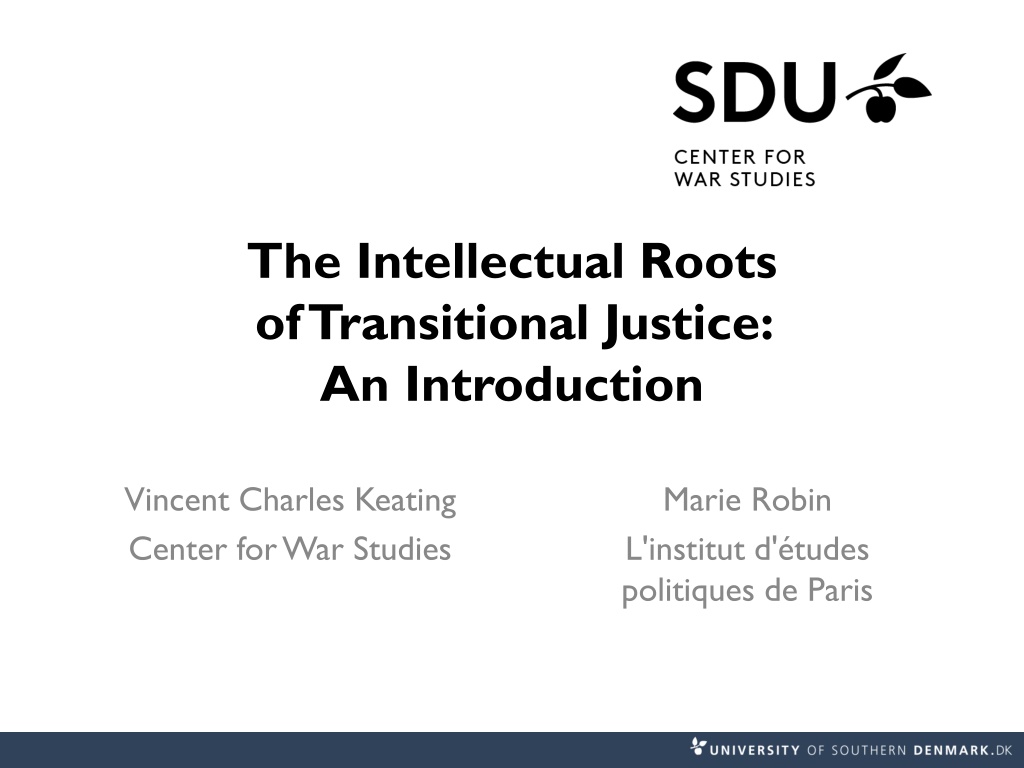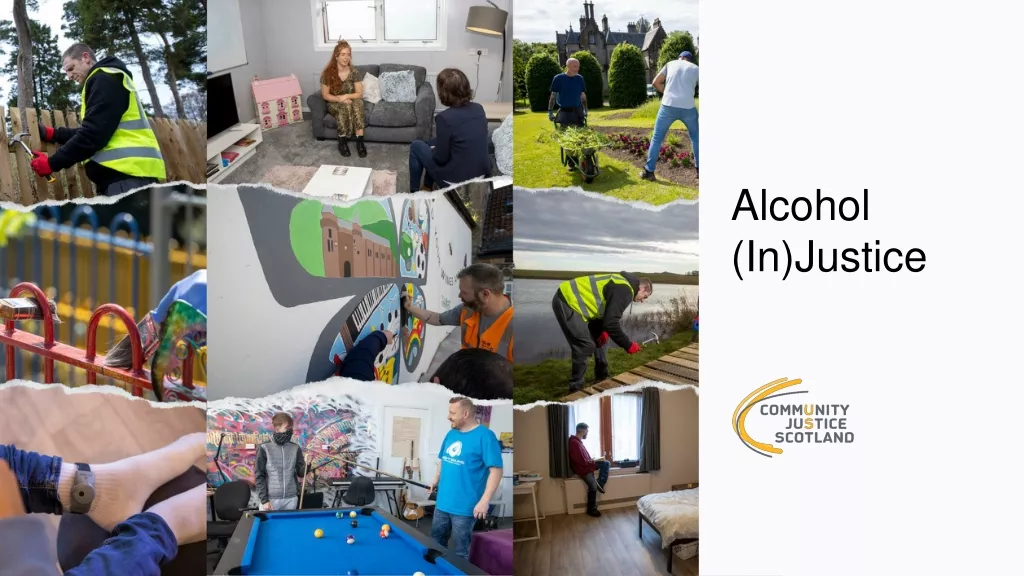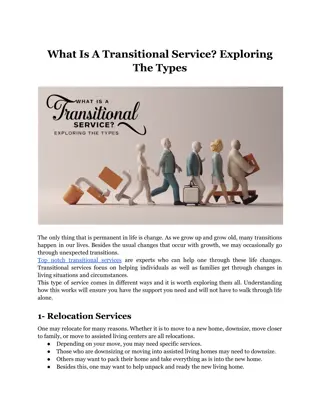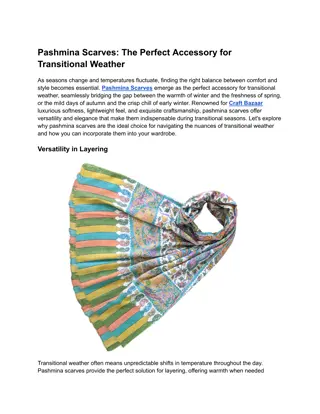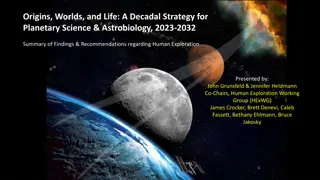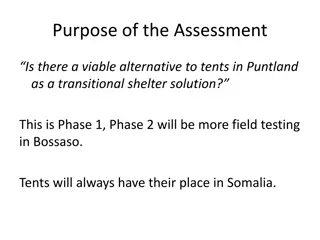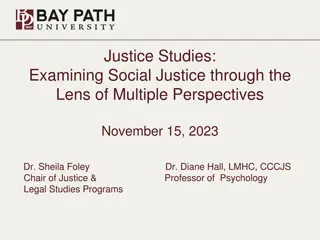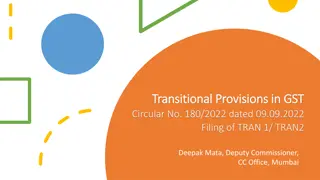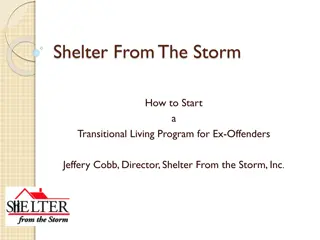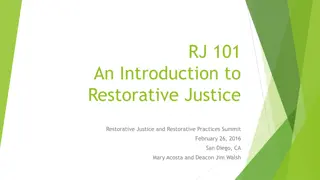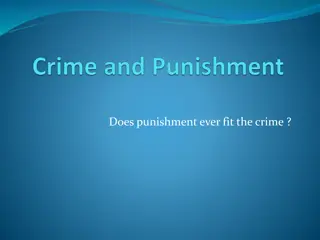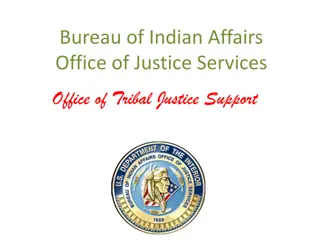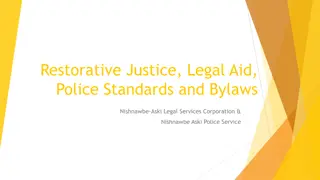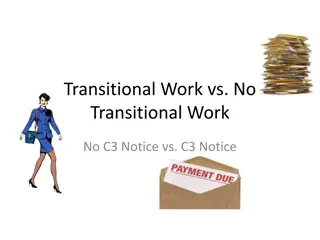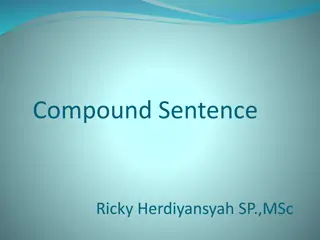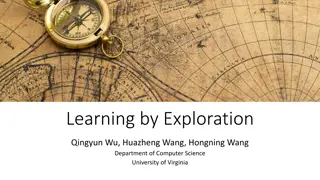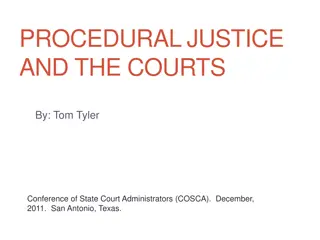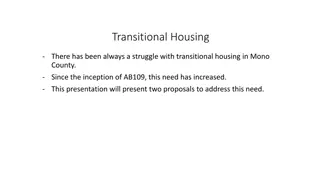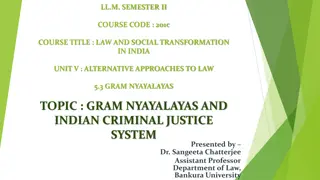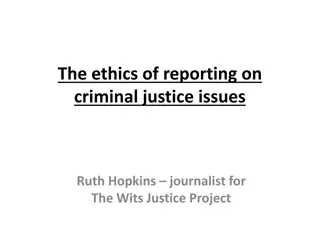Understanding Transitional Justice: An In-depth Exploration
Transitional justice is a response to widespread human rights violations, aiming to acknowledge victims and promote peace, reconciliation, and democracy. This concept involves adapting justice to societies transforming after periods of abuse. It explores contentious terms, ethical goals, potential justice objectives, and the historical context that shapes transitional justice practices.
Download Presentation

Please find below an Image/Link to download the presentation.
The content on the website is provided AS IS for your information and personal use only. It may not be sold, licensed, or shared on other websites without obtaining consent from the author. Download presentation by click this link. If you encounter any issues during the download, it is possible that the publisher has removed the file from their server.
E N D
Presentation Transcript
The Intellectual Roots of Transitional Justice: An Introduction Vincent Charles Keating Center for War Studies Marie Robin L'institut d' tudes politiques de Paris
Transitional Justice response to systematic or widespread violations of human rights [that] seeks recognitionfor victims and the promotion of possibilities for peace, reconciliation and democracy not a special form of justice but justice adapted to societies transforming themselves after a period of pervasive human rights abuse 2
Transitional Justice response to systematic or widespread violations of human rights [that] seeks recognition for victims and the promotion of possibilities for peace, reconciliation and democracy not a special form of justice but justice adapted to societies transforming themselves after a period of pervasive human rights abuse 3
Contentious Terms Transitional How different is it from non-transitional justice? How does it interact with non-transitional justice? What determines the length of the transitional period? Who is included/not included in the transition? Justice When is it appropriate to move from non-transitional to transitional justice? What are the ethical goals for the process? Are the ethical goals synergistic or oppositional? How do the transitional ethical goals interact pre-existing social norms? 4
Potential Justice Goals Political Peace Liberal democracy (positive peace?) Social Recognition Reconciliation Judgmental/Punitive Establishing social truth (through dialogue) Reparations 5
Historicity of the Transitional Justice Transitional justice as a socially/historically bounded concept Particularly as a less-institutionalized form of justice? Actors make decisions about the nature of transitional justice based on: The nature of the problem that transitional justice is to solve/alleviate Historical practice/norms of transitional justice Strength of other prevailing social norms Transitional justice is not simply something ; it is part of a mutually constituted historical process, where agents act to change an environment that, at the same time, structures their agency 6
Importance of Intellectual History Intellectual history can help us to Avoid presentism Understand the existence/strength of the current norms of transitional justice Understand the reasons for fundamental disagreement over different interpretations of transitional justice Reflect on whether our present position makes ethical sense by opening up previous situated arguments/practices 7
